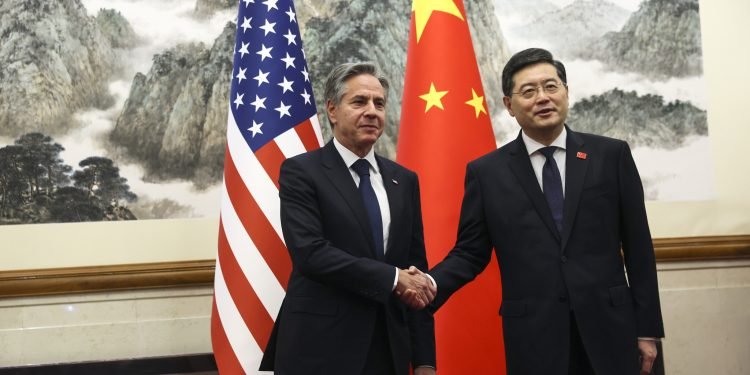Antony Blinken’s arrival in China comes at a delicate juncture in the increasingly strained relationship between the world’s foremost powers. Despite recent progress in certain areas, tensions have mounted, particularly concerning China’s facilitation of weapon components and dual-use products to Russia, bolstering Vladimir Putin’s military capabilities and exacerbating the conflict in Ukraine.
In recent times, Beijing had shown a more conciliatory stance, notably reducing its military posturing in the Taiwan strait following discussions between Xi Jinping and Joe Biden in 2023. These talks, held in Woodside, California, not only improved people-to-people ties but also saw agreements on issues like increased air travel between the two nations and measures to combat the fentanyl crisis in Latin America.
During his visit, Blinken’s itinerary includes unconventional diplomacy efforts such as engaging with students and attending a basketball game in Shanghai, marking a stark departure from the tense atmosphere of the past. However, as he prepares for high-level meetings with Chinese officials, including Wang Yi and possibly Xi Jinping, discussions are expected to center around contentious issues like China’s support for Russia amidst the Ukraine conflict.
The United States, in coordination with European allies, is considering sanctions against Chinese entities involved in supporting Russia militarily, aiming to safeguard its national interests and regional stability. While such measures might strain bilateral relations further, the US believes in the efficacy of collective pressure to influence China’s actions.
Beijing, however, remains firm in its stance, asserting its rights to conduct trade with Russia and other nations without external interference. Nevertheless, Blinken’s team is cognizant that China’s response to pressure over its support for Russia could impact cooperation on other critical issues, such as combating the fentanyl trade.
Amidst these challenges, the US continues to engage with China on various fronts, from regional security concerns like North Korea to global issues like the situation in the Middle East. While diplomatic exchanges may encounter friction, both sides recognize the importance of maintaining stability amidst evolving economic landscapes and geopolitical complexities.























